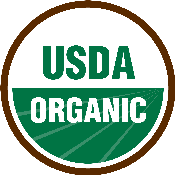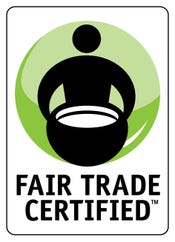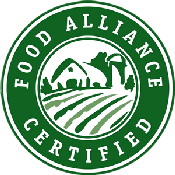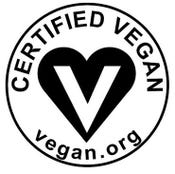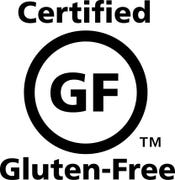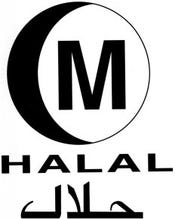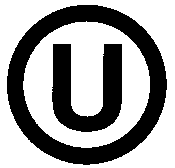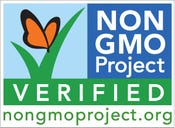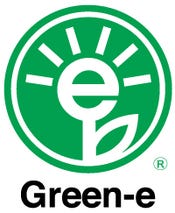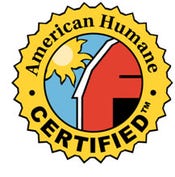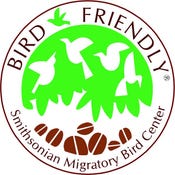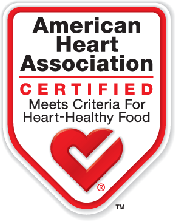Third-party certifications are essential to natural products labels. They separate your brand from its conventional counterpart, and even your natural competitors. But which ones to choose? Take a look at this list of common natural product certifications to see if they match up with your mission. Shotgun approaches may work if you’re trying to reach the broadest possible consumer base, or focus on one or two to snag your singular consumer.
June 4, 2013

What’s in a claim? Plenty, if you're in the super-competitive natural foods industry. The advantages of having a certification on your label? You can quickly play up your salient selling points and differentiate yourself from competitors. And third-party verification confers a certain degree of respectability.
Choosing the right label claim is crucial—and you’ll have dozens to choose from. Which ones are best? Here’s a rundown of the most popular, widely recognized and legitimate labels for packaged goods.
The gold standard of the organic industry, this certification prohibits the use of synthetic fertilizers, chemicals, sewage sludge, bioengineering methods, ionizing radiation or genetically modified organisms (GMOs). For products containing meat and/or dairy, animals were fed organically grown feed and are free of antibiotics and hormones. Managed by the U.S. Department of Agriculture (USDA), the claim meets rigorous standards and is verified by third-party organizations who conduct ongoing audits. Independent organic certifiers include Quality Assurance International (QAI) and various region-specific programs.
Fair Trade focuses on workers’ rights and sustainability issues in developing countries. The certification, managed by Fair Trade USA (formerly TransFair USA), guarantees that farmers receive a fair price for their goods; farms are required to offer safe working conditions, ensure children's rights, use ecologically sustainable practices and methods that enhance biodiversity, and have access to community development projects. The claim is third-party verified under the "group certification" model, which includes an audit of the producer organization itself and random checks of individual farmers. Standards are rigorous, and are set in accordance with the ISEAL Code of Good Practice on Standard Setting.
Food Alliance, like Fair Trade, looks at social issues behind products, but focuses on North American farms and companies. The certification requires environmentally and socially responsible practices, including safe and fair working conditions, humane livestock conditions, an avoidance of hormones, antibiotics and GMOs, sustainable growing methods, soil and water conservation, pesticide reduction and wildlife habitat preservation. Third-party inspections on farms are conducted every three years, and Food Alliance-certified farmers are also required to submit annual reports.
This logo, administered by the Vegan Awareness Foundation (formal name: Vegan Action), is used for packaged foods that don’t include animal products or byproducts and that have not been tested on animals. The certification prohibits flesh, bones, dairy, eggs, honey, fur, leather, wool, down feathers, and cosmetics or chemical products tested on animals during any stage of processing or production. Companies must provide supplier verification that animal products were not used in the manufacturing of ingredients, and must submit documentation that utensils and machinery used between vegan and non-vegan production are appropriately sanitized if shared equipment is used. Certifications must be renewed annually to guarantee that these requirements are still being met, and no ingredients or processes have changed.
This program, offered by organic certifier QAI in partnership with The National Foundation for Celiac Awareness (NFCA) and NSF International, is one of the fastest growing labels for processed foods. The certification uses a science-based and third-party verification process that includes sensitive testing procedures, stringent auditing processes, rigorous standards to ensure avoidance of co-mingling and cross-contamination, on-site, annual inspections and an independent application review process. Products that bear this seal are certified to contain less than 10 parts per million of gluten.
A quickly growing category, Halal foods are produced and processed in accordance with Muslim dietary laws. These include an avoidance of pork, alcohol, carnivorous animals, blood and by-products of blood. Methods of slaughter are also strictly regulated. The certification requires that food processing facilities and ingredients are inspected to ensure adherence to Halal standards, and certification is provided by a certified third-party agency. The largest of these agencies is the Islamic Food and Nutrition Council of America (IFANCA).
Foods that bear this label adhere to Jewish dietary laws. These prohibit the consumption of certain animals such as pigs and rabbits, certain parts of other animals, and blood and blood by-products. Meat cannot be eaten with dairy, and utensils that have come into contact with meat may not be used with dairy, and vice versa. A product may also bear a letter identifying its kosher status. For example, “D” means the product contains dairy, “M” stand for meat, and “P” means kosher for Passover. Products that are Parve or Pareve, meaning the product does not contain or has not come into contact with meat or dairy products, may also be listed. A number of certifications are available, but the largest, oldest and most rigorous is the “U” symbol, belonging to the Union of Orthodox Jewish Congregations. Other third-party verifications include Star-K, Triangle-K and Kof-k.
Products that bear this seal have undergone a rigorous verification process to ensure an absence of GMOs. The guidelines adhere to European Union laws that require products containing more than 0.9 percent GMOs can’t be labeled non-GMO (though the goal of the certification and the agency is complete absence of all GMOs). Ongoing testing is required for all GMO-risk ingredients like corn and soy, usually during initial processing. The certification allows for testing in a variety of places in the production chain, but testing the finished product is discouraged, since it’s not as reliable a measure. Strict traceability and segregation practices must be followed, and annual audits and on-site inspections for some products ensure compliance.
This logo, from the non-profit Center for Resource Solutions, signifies a company’s commitment to environmentally sound practices; when it appears on a food label, it means the company gets at least 50 percent of their power from renewable sources and purchases carbon offsets, and that the product was manufactured using 100 percent clean energy. It’s a relatively new certification for food and supplements, but quickly growing in respectability and popularity.
This certification program, focused on the care and handling of farm animals, adheres to the science-based animal welfare standards of the American Humane Association. Built upon the “Five Freedoms of Animal Welfare” values from the Farm Animal Welfare Council, these include the avoidance of hormones and sub-therapeutic doses of antibiotics; a healthy diet that’s free of animal byproducts; adequate shelter; comfortable resting areas; sufficient space to express typical behavior; and an environment that minimizes stress. The certification is third-party, independently verified and requires ongoing inspections.
Certified Humane Raised & Handled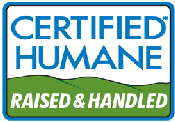
Similar to American Humane Certified, this program is administered by Humane Farm Animal Care (HFAC), a national non-profit animal welfare group. Companies using this logo must adhere to the Humane Farm Animal Care program standards, which include nutritious, meat-free diet without antibiotics or hormones. It also provides for adequate shelter, resting areas, sufficient space and gentle handing. Cages, crates and tie stalls are forbidden practices, and animals must be free to engage in natural behaviors. Producers must also comply with higher standards during slaughter than those required by the Federal Humane Slaughter Act. The certification is third-party verified through HFAC.
This seal, designed specifically for the coffee industry, requires that coffee growers and producers adhere to organic standards and meet strict requirements to provide good bird habitats. These requirements include maintaining a tree canopy, ensuring diversity in tree and plant species, and establishing plant borders around streams or rivers. The certification combines several coffee labeling processes, including certified organic and shade grown, for a more comprehensive certification checklist. Standards are set by the Smithsonian Migratory Bird Center, and compliance is third-party verified.
To use this claim, a product must adhere to strict heart-healthy guidelines for fat and sodium content, set by the U.S. Food and Drug Administration. Under current requirements, a product must contain less than 6.5 grams of total fat; 1 gram or less of saturated fat with fewer than 15% of calories from saturated fat; and less than 0.5 grams of trans fat, 20 milligrams of cholesterol and 480 milligrams of sodium per serving. One serving must also contain at least 10 percent of the recommended daily allowance of certain nutrients, including fiber. No grain-based bars or desserts are eligible for certification, and beverage certification is limited to milk, dairy alternatives like soy or nut milks, drinkable yogurts, and 100% fruit vegetable juices.
About the Author(s)
You May Also Like

